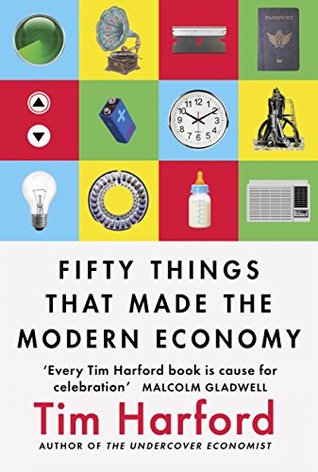More on this book
Community
Kindle Notes & Highlights
The economic logic of migration often seems more compelling when it doesn’t involve crossing national borders. In 1980s Britain, with recession affecting some of the country’s regions more than others, employment minister Norman Tebbit implied – or was widely taken to be implying – that the jobless should ‘get on their bikes’ to look for work. How much might global economic output rise if anyone could get on their bikes to work anywhere? Some economists have calculated it would double
It’s been rising steadily over time, and in 2015 a landmark was reached: for the first time in their history, Americans spent more on food and drink outside the home than at grocery stores. In case you think the Americans are unusual in that, the British passed that particular milestone over a decade before. Even within
Economists have since confirmed that there’s a relationship between productivity and keeping cool. William Nordhaus of Yale divided the world into cells, by lines of latitude and longitude, and plotted each one’s climate, output and population: the hotter the average temperature, he found, the less productive people could be. According to Geoffrey Heal of Columbia University and Jisung Park of Harvard, a hotter-than-average year is bad for productivity in hot countries,
And just as with the development of the TV dinner, simplifying the process of feeding a family transforms the labour market. Fewer shopping trips means housewives face fewer obstacles to becoming career women. As low-income countries get wealthier, fridges are among the first things people buy: in China, it took just a decade to get from a quarter of households having fridges to nearly nine in ten.
So what explains this remarkable alacrity? A quirk of geography: London’s parliament is located next to the River Thames. Officials tried to shield lawmakers from the Great Stink, soaking the building’s curtains in chloride of lime in a bid to mask the stench. But it was no use – try as they might, the politicians couldn’t ignore it. The Times described, with a note of grim satisfaction, how Members of Parliament had been seen abandoning the building’s library, ‘each gentleman with a handkerchief to his nose’. If only concentrating politicians’ minds were always that easy.
China poured more concrete in the three years after 2008 than the United States poured during the entire twentieth century, and nobody thinks that all that concrete is made to exacting standards.
A century ago, for example, global average life expectancy at birth was just thirty-five; when I was born, it was sixty; recently it rose above seventy.


